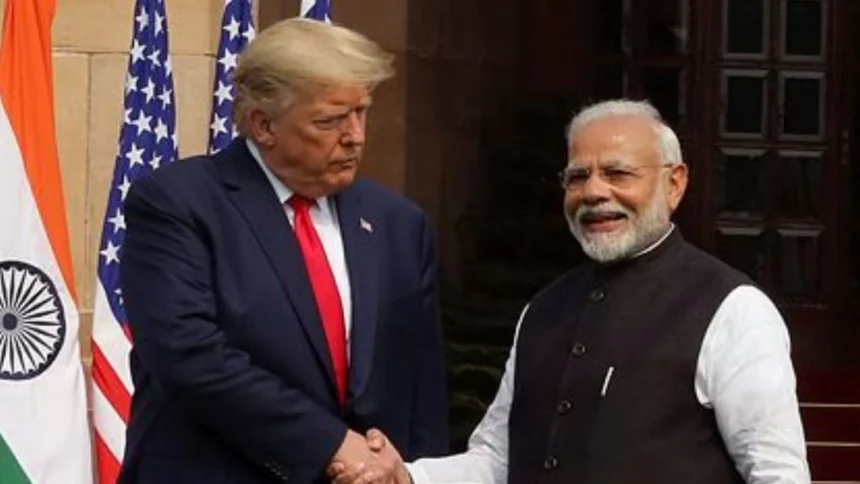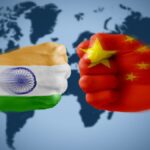India and the U.S. reached a mutual understanding in February to work on the preliminary phase of a trade agreement, targeting its completion by the end of the year. The broader goal is to achieve $500 billion in bilateral trade by 2030.
The announcement followed U.S. President Donald Trump’s decision on Wednesday to pause most tariff increases on key trading partners, including India, for 90 days. At the same time, higher tariffs were imposed on China, offering temporary relief to Indian exporters.
Negotiations between the two countries will continue through virtual meetings on a regular basis. According to an official, delegation-level visits from both sides may also take place to support ongoing discussions.
The official noted that U.S. Vice President JD Vance is expected to visit India soon as part of these efforts.
Earlier this month, the Trump administration announced a 26% tariff on Indian goods. However, the Indian government responded by stating it had no plans for retaliatory measures.
Trade between India and the U.S. surged to approximately $129 billion in 2024, with India enjoying a $45.7 billion trade surplus. India remains the U.S.’s largest trading partner.
India has since directed its customs authorities to tighten checks on imports and exports to prevent the misuse of its trade routes as a way to bypass U.S. trade policies, according to the official.
To address trade-related challenges, India has launched a global tariff and trade helpdesk. This resource is designed to assist stakeholders with issues such as import/export concerns, surges in imports, dumping, supply chain disruptions, and financial difficulties, as highlighted in a notice from the Directorate General of Foreign Trade.
Trade experts have suggested that U.S. tariffs on Chinese goods could drive some companies to use India to funnel exports into the U.S. market under less restrictive terms.
India’s Economy Self-Reliant
Meanwhile, senior BJP leader and Rajya Sabha MP Zafar Islam expressed strong support for the Modi government’s economic policies. “India’s economy is expanding rapidly,” he said, emphasizing notable growth in key sectors. “We’re seeing remarkable progress, particularly in areas like power generation.”
Addressing concerns about potential global trade disruptions caused by Trump’s tariff policies, Islam assured that India is well-prepared to withstand external pressures. “There’s global unease regarding Trump’s tariffs, but India’s economy is resilient. The impact on us will be minimal,” he said.
Highlighting India’s financial strength, Islam pointed to data indicating solid growth. “High-frequency indicators show the strength of our economy—whether it’s consistent growth or increased capital investments,” he noted.
Reflecting on the economic reforms initiated since the BJP came to power, Islam credited Prime Minister Narendra Modi for transforming the nation’s financial framework. “When we took office in 2014, PM Modi prioritized economic reform. One of his first actions was launching the Jan Dhan Yojana to bring more people into the banking system. Today, over 53 crore individuals are part of the initiative, with 66% of them being women.”
He also highlighted the global recognition of programs like the Pradhan Mantri Mudra Yojana (PMMY). “Initiatives like the Mudra Yojana are being acknowledged worldwide. The program has helped countless individuals expand their businesses and created many success stories.”
Islam concluded by stating that the Mudra Yojana is now considered a global model for fostering small business growth and entrepreneurship.
As India conducts negotiations on significant trade deals with major economies, Union Commerce Minister Piyush Goyal reiterated that the country would not compromise its national interests for the sake of faster agreements.
Islam also said India was currently working on trade pacts with the U.S., U.K., and EU. The India-U.S. agreement is expected to be finalized by fall 2025, while the India-EU Free Trade Agreement could be completed by the end of the same year.
Related News:
India and European Union Edge Closer to Free Trade Agreement

Geoff Thomas is an award winning journalist known for his sharp insights and no-nonsense reporting style. Over the years he has worked for Reuters and the Canadian Press covering everything from political scandals to human interest stories. He brings a clear and direct approach to his work.













